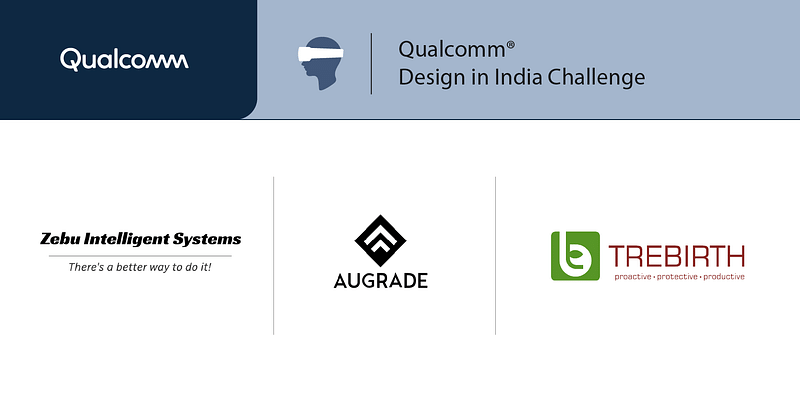
The Qualcomm Design in India Challenge (QDIC) 2023 is a testament to the power of innovation as it identifies 12 startups poised to transform various sectors with cutting-edge technology.
With a history of incubating over 89 startups, filing 350 patents, launching 28 commercial products, and raising $248 million in capital, QDIC remains a vital force in fostering groundbreaking ideas.
Since its inception in 2016, QDIC has been a driving force in pushing the boundaries of hardware technology innovation. The challenge focuses on smart devices and products, spanning areas like smart infrastructures, agriculture technology, industrial automation, robotics, drones, medical technology, and rural IoT. In partnership with NASSCOM CoE-IoT and Startup India, QDIC selected 12 startups from over 140 applications through a rigorous jury process.
Exploring the Qualcomm Design in India Challenge 2023, this series of articles unveils the narratives of startups shaping the future. The first article featured Thryv Mobility, Ayati Devices, and Rymo Technologies, while the second article covered Flextron, Auklr Technologies, and FLO MOBILITY. In this article, we delve into the narratives of three startups among the shortlisted cohort: AUGRADE, Trebirth, and Zebu Intelligent Systems, showcasing their transformative journeys in agriculture, CAD tools, and robotics.
Each startup brings a unique approach to harnessing Qualcomm’s technologies for impactful solutions.
Trebirth: Transforming agriculture with precision
Inception Story: Founded in January 2020, Trebirth emerged from Digital Impact Square (DISQ), focusing on social innovation. Mukund Choudhary and Maitree Dedhia’s journey began with a challenge to detect stem borers precisely in plants and trees, a problem identified by DISQ’s ecosystem partners and Sahyadri Farms.
Differentiating Factor: Trebirth developed a high-precision, portable, and non-invasive scanning device that detects stem borer damage inside plants before visible signs appear. Unlike existing solutions, their approach is affordable, non-destructive, and offers early intervention for farmers.
QDIC Impact: QDIC significantly contributed to Trebirth’s growth by providing access to state-of-the-art microcontrollers, mentorship, and insightful workshops. The challenge facilitated collaboration with other hardware startups, fostering innovative solutions.
Milestone: Securing the BIRAC BIG grant was a significant achievement for Trebirth, providing financial support and enabling exploration of new horizons. The grant propelled them to file intellectual property rights and trademarks, accelerating their mission to tackle agricultural challenges.
AUGRADE: Revolutionising CAD tools
Inception Story: Founded in April 2021 by co-founders during their third year of engineering, AUGRADE aims to disrupt CAD tools, particularly in heavy industries like aerospace, automotive, and AEC. The vision is to empower anyone to start viable space tech, EV startups, or build homes with an AI+AR platform.
Differentiating Factor: AUGRADE’s platform automates 3D model creation with technical accuracy, offering a simple yet powerful solution for tedious and complicated CAD tasks. Their mission is to automate 80% of tasks, allowing engineers to focus on solving real problems.
QDIC Impact: QDIC played a crucial role in supporting AUGRADE’s AI+AR CAD tool, providing technical and supply chain management support. The challenges and programmes like it have been essential in realising their vision.
Milestone: Bootstrapping for an extended period, AUGRADE’s milestone was finding supporters like Tyler Cowen, Jim O’Shaughnessy, and programmes like QDIC, providing the resources and support needed to build their vision. This led to closing deals with significant enterprise clients.
Zebu Intelligent Systems: Affordable 3D Mapping
Inception Story: Founded by a PhD specialist in Intelligent Systems and Robotics, Zebu Intelligent Systems began as a service provider with a CTO-as-a-service model. The focus shifted to product development, including a low-cost 3D mapping sensor powered by Qualcomm for both defence and civilian applications.
Differentiating Factor: Zebu’s 3D mapping sensor mimics LiDAR functionality at a fraction of the cost, aiming to bring affordable mapping solutions to facilitate robot autonomy at scale.
QDIC Impact: QDIC provided critical support for Zebu, offering access to Qualcomm hardware, technical expertise, and tailored workshops in collaboration with T-Hub.
Milestone: Zebu recently secured paid pilot projects from the Ministry of Defence, supported by the AtmaNirbhar Bharat initiative. These projects, backed by a strong IP portfolio, mark a significant achievement in the defence sector.
The Qualcomm Design in India Challenge continues to be a driving force in fostering innovation and empowering startups to push the boundaries of technology. The stories of AUGRADE, Trebirth, and Zebu Intelligent Systems exemplify the transformative impact that QDIC has on startups, propelling them toward success in their respective fields. As these startups continue their journeys, QDIC remains a crucial catalyst for the evolution of India’s hardware technology landscape.







![Read more about the article [Funding alert] Pune-based sexual and mental wellness app for teens ThatMate raises $140K in angel round](https://blog.digitalsevaa.com/wp-content/uploads/2021/05/Image13o8-1622442862510-300x150.jpg)


